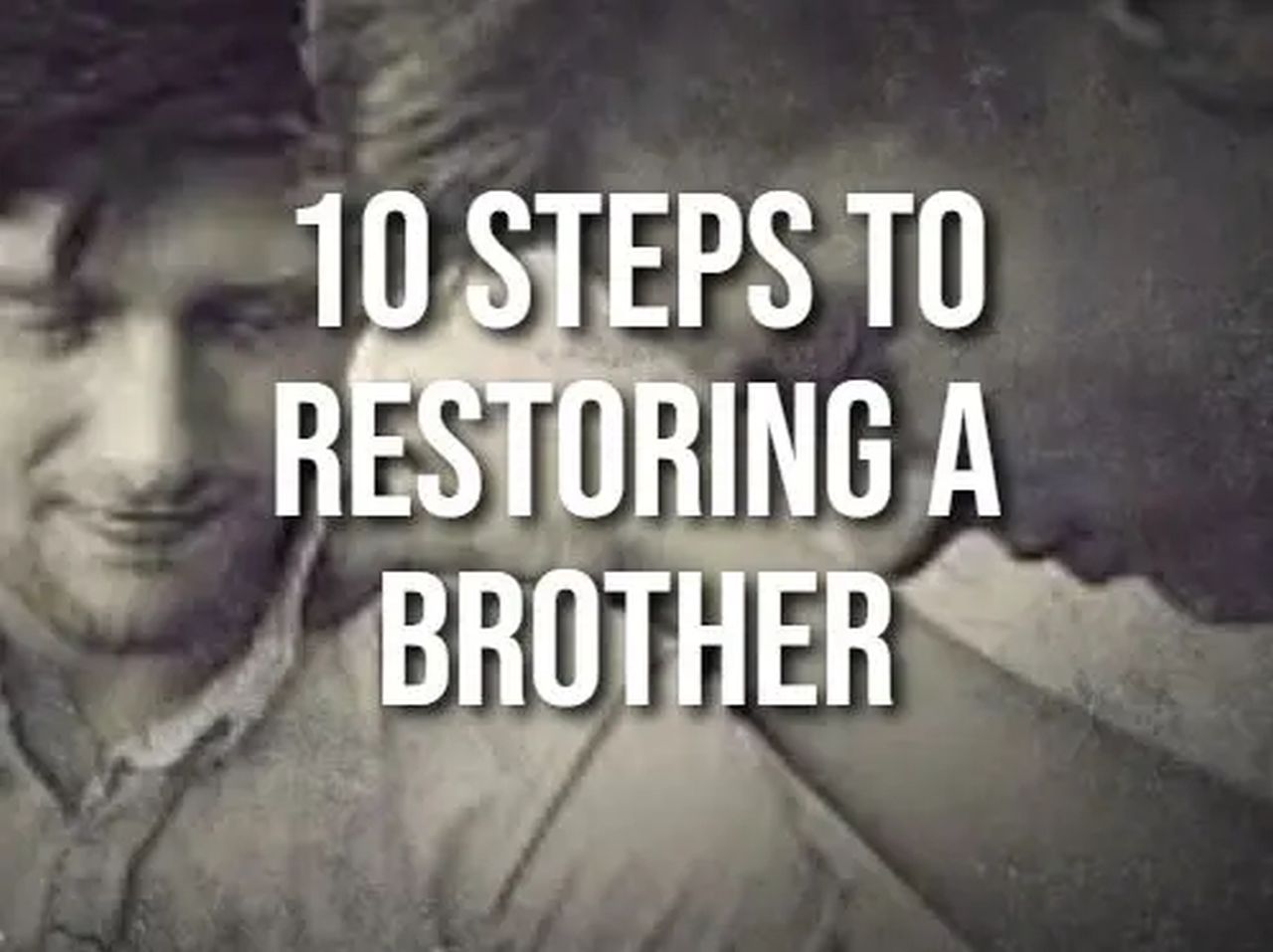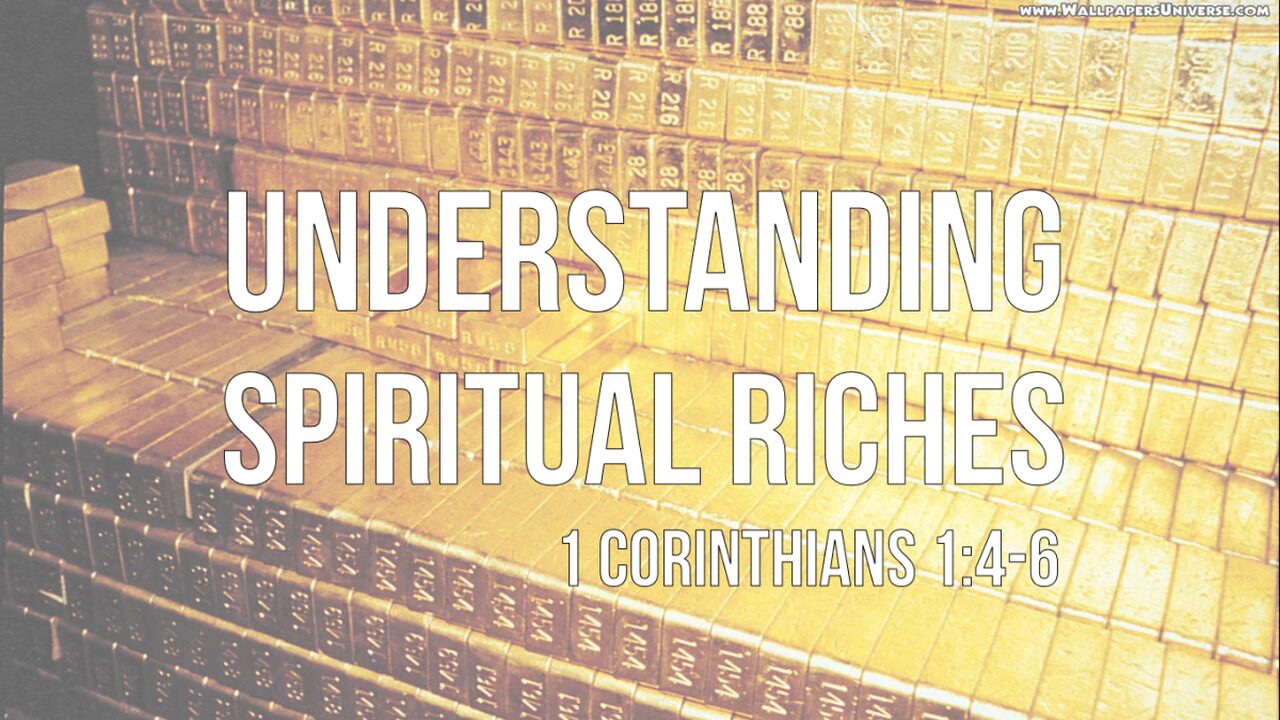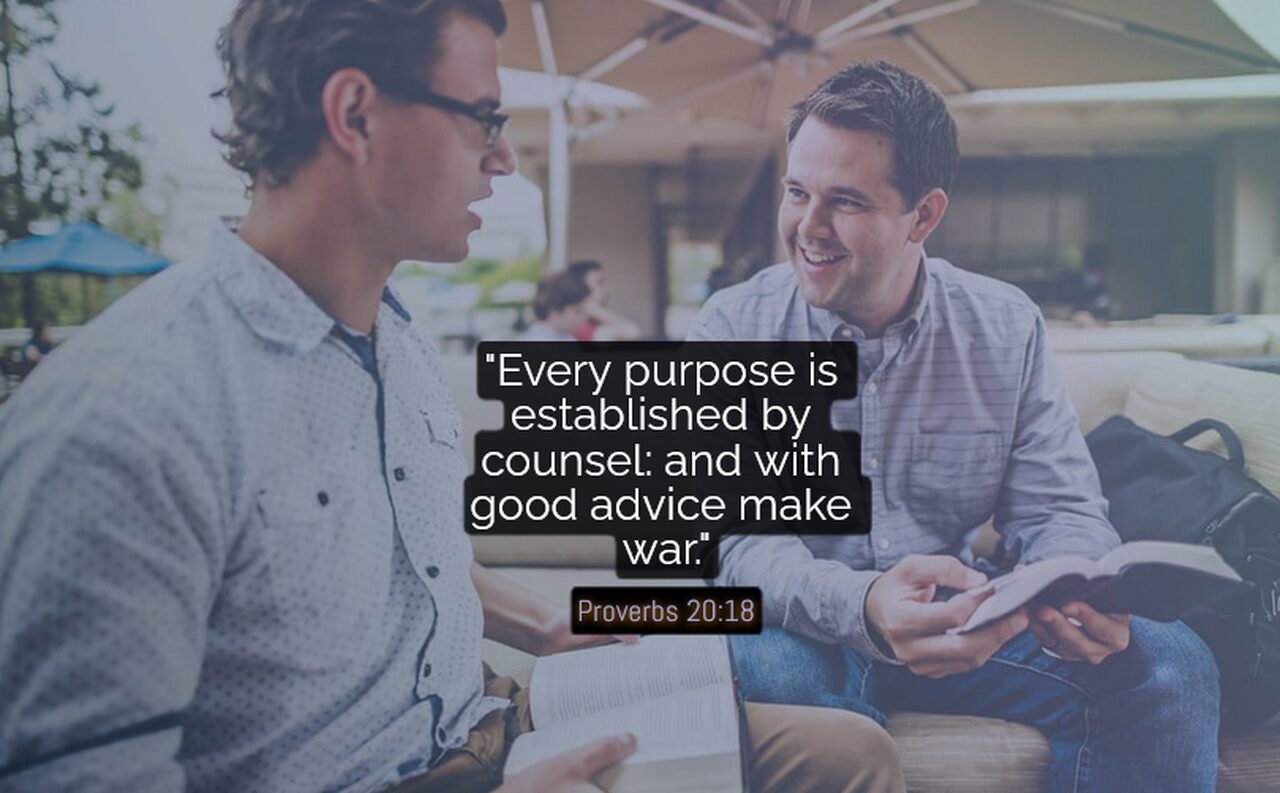The LORD corrects those He loves and we all need correction at times, yet only if we choose to hearken, humble ourselves, be teachable, and repent, will God restore us back to Himself (Proverbs 28:13; Hebrews 12:5-12; Revelation 3:19, etc.).
“As many as I love, I rebuke and chasten: be zealous therefore, and repent.” Revelation 3:19
Pastor Steve Cornell
(Matthew 18:1-35)
When someone becomes a follower of Jesus Christ, he also becomes part of a spiritual family. He belongs, as Jesus said, to “one of these little ones which believe in me” (Matthew 18:6). “So we, being many, are one body in Christ, and every one members one of another.” (Romans 12:5: cf. I Corinthians 12:24-27). Among the followers of Christ, there is a powerful spiritual unity that overcomes social and ethnic distinctions that separate people in the larger culture.
Believers form a spiritual family of brothers and sisters in Christ. Our loyalty to Christ and to those who belong to Him is so significant that we will not allow mere earthly relationships to compromise it. It is not uncommon for those earthly relationships to become strained when a person becomes a follower of Christ. (see Matt. 10:32-37) Our love for Jesus Christ, which is demonstrated in our love for those who belong to Christ, is superior to the love we have for mere earthly relationships.
In Matthew 18:15, Jesus opens with a family reference: v. 15, “if thy brother shall trespass against thee.” “Brother” is not meant as an exclusive reference to male members of the Church. (The same teaching applies to “sisters” in Christ). It could be understood this way, “If a fellow member of the church sins….”
What should our response be when a fellow member sins? (whether “against us” or not) Should we say, “That’s his business, who am I to judge him?” No. Jesus said, “Go and show him his fault just between the two of you.” Jesus’ requirement begins with “private confrontation.” But, before this step, there needs to be “personal preparation.”
The first two steps must be followed. They are:
1. Personal preparation (see: Matthew 7:3-5)
Jesus forbids looking at the faults of others without first dealing with our own sins. Remove the log from your own eye, Jesus insists, before you notice and remove the speck from your brother’s eye. Jesus clearly encouraged involvement in other people’s lives, but only after careful self-examination. This will help facilitate the attitude described in Galatians 6:1-2.
2. Private confrontation (Matthew 18:15; cf. Lev. 9:17).
Through proper preparation, we should prayerfully and patiently desire to resolve matters at the step of private confrontation. This is where the teaching of Matthew 5:23-24 and Matthew 18:15 should merge (See below my “Two Principles for Resolving Conflicts”). Church leaders should repeatedly teach people the principles of confronting and covering in love before applying Matthew 18:15-17.
If private confrontation does not lead to true repentance and restoration, a third step is required by Jesus.
3. Private conference (Matthew 18:16; cf. Deut. 19:15; Num. 35:30; Deut. 17:6)
If the third step, “private conference” is needed, it is not merely based on the sin that originally occasioned the confrontation. Instead, it is activated because of an obstinate attitude of the one confronted (v. 16). When a sinning member of the church refuses to heed the confrontation of a fellow believer, thus refusing to be restored to proper fellowship, the circle of confrontation needs to broaden so that it includes one or two others (This is based on an O.T. principle from Deut. 19:15; Num. 35:30; Deut. 17:6). Assuming that the one who made the initial confrontation kept the matter between himself and the sinning member, whom should he enlist for this third step? “One or two more” right? Yes. But who should these people be?
* People who are spiritually prepared (Matt. 7:3-5)
* People who are spiritually mature (Gal. 6:1)
* (Perhaps, but not necessarily) People entrusted with spiritual oversight (I Pet. 5:1-4; Acts 20:28)
Nothing in the text requires that these people be eye witnesses to the sin being confronted. If they had been, they should have gone to confront. Ideally , it would be good to include people who are known and respected by the erring member (e.g. small group leaders). What is the function of the one or two others? (V. 16), “that in the mouth of two or three witnesses every word may be established.” Their purpose is not to threaten or intimidate, but to help the erring brother to understand the seriousness of the matter. They do not get involved to evaluate the truthfulness of the charge, but to strengthen the rebuke and the call to restoration. After private conference, if the erring member remains obstinate and unwilling to acknowledge and repent of the sin and be restored to proper fellowship, Jesus teaches a fourth step (3rd in the text itself).
4. Public Announcement (v. 17a)
“Tell it unto the church” (i.e. to the “ekklesia,” the assembly). This step is a sobering reminder that sin is not always a private or personal matter for a Christian. When sin separates and alienates believers, it must be dealt with and resolved. But how do we take the step of public announcement? This might depend on the size of the church. In our church (500+ people), it would be communicated to the covenant members through a special meeting of the membership. These meetings would be precipitated by a letter to the members emphasizing that an urgent matter must be addressed. It is wise to make public discipline announcements at a service that includes communion. This helps the entire body remember that we all need the Savior and His forgiveness. It also helps to protect the body from a sinful pride (Gal. 6:1-2). Further, it affords opportunity for congregational instruction about repentance and restoration.
It is important for churches to specifically outline these steps in their constitutions to avoid law suits. Churches have been sued for following Matt. 18 and have lost in court, because they lacked specific reference to the steps in their official documents. (Note: It is not enough to say, “We follow the bible.”) Churches are wise to limit the public announcement to those who are actual members. Discipline of non-members is sticky territory. This is another reason why most churches need to become more intentional about membership (see: Membership Matters, Chuck Lawless, Zondervan).
5. Public confrontation (v. 17b),
This implies that the church (as an assembly) has made an appeal to the erring member. When the church is informed, it seems to imply that the pastors will be involved. And when this happens, it should be accompanied by warnings about the need to avoid:
* Gossip and slander
* A proud, critical spirit (Mattt. 7:3-5; Gal. 6:1)
* A lenient or punitive attitude
* Playing spiritual detective
People should be encouraged to pray for repentance and restoration. They should also call the brother or sister to make things right by responding in a godly manner. For those uncertain what to say, we recommend that they say, “I don’t know all the details, nor is it my place, but I do want to encourage you to make things right with the church.”
No one should give this brother the feeling that everything is fine (cf. II Thess. 3:12-14). Don’t act in cross purpose with the church. This would be disrespectful to the Church. Remember the goal, “Gain/Win thy brother.” It is redemptive! We should long for and pray for true repentance. True repentance is described in II Corinthians 7:10-12: ““For godly sorrow worketh repentance to salvation not to be repented of: but the sorrow of the world worketh death. 11For behold this selfsame thing, that ye sorrowed after a godly sort, what carefulness it wrought in you, yea, what clearing of yourselves, yea, what indignation, yea, what fear, yea, what vehement desire, yea, what zeal, yea, what revenge! In all things ye have approved yourselves to be clear in this matter. 12Wherefore, though I wrote unto you, I did it not for his cause that had done the wrong, nor for his cause that suffered wrong, but that our care for you in the sight of God might appear unto you.”
If true repentance becomes clear, the goal is restoration. This is described in: II Corinthians 2:6-8: “Sufficient to such a man is this punishment, which was inflicted of many. 7So that contrariwise ye ought rather to forgive him, and comfort him, lest perhaps such a one should be swallowed up with overmuch sorrow. 8Wherefore I beseech you that ye would confirm your love toward him.”
6. Public exclusion (v. 17c)
When the sixth step becomes necessary, the focus shifts from the individual to protection of the Church. The emphasis moves from redemptive to judicial. This decision protects the unity and purity of the Church but it is also best for the individual.
This final step is powerfully illustrated in I Corinthians 5.
Steve Cornell
When a Brother Stumbles
Church discipline serves to bring the transgressor to repentance and restore his faith in God.
Do you want to get deeper into God’s Word? If so, send a reply requesting the “Moments with My Master” email that is sent out to edify Christ’s body. Sign up Here.
Support | STORE | Podcasts | Jail/Prison Ministry | Mexico Mission here | All Ministry Updates | More on Assurance here | Because You Care Page | The Greatest of these is Charity | Be Ready in the Morning [podcast] | The Sure Mercies of David [podcast] | That Repentance and Remission of Sins should be Preached [podcast] | At His Feet | Knowing God | The Cross Life | 100’s of Christ-centered Scripture-rich Podcasts | Christology = the Study of Christ



Articles
Rich in Faith [podcast]

“Them that Love Him”
——WHAT one temporarily has in this fleeting world or doesn’t have, has NOTHING to do with that person’s spiritual state. This is what Jesus taught: “Take heed, and beware of covetousness: for a man’s life consisteth not in the abundance of the things which he possesseth.” (Luke 12:15) In fact James says:
“HEARKEN, MY BELOVED BRETHREN, HATH NOT GOD CHOSEN THE POOR OF THIS WORLD RICH IN FAITH, AND HEIRS OF THE KINGDOM WHICH HE HATH PROMISED TO THEM THAT LOVE HIM?” JAMES 2:5
James says God chooses those for His eternal kingdom “that love him,” namely “the poor of this world.” We are justified by “faith” and not by what we do or do not temporarily possess in this fleeting life.
IF in your mind you rate people by what they have or don’t have in this fleeting sinful world, you are deeply deceived and in utter need of repentance and the washing of water by the Word of God. You are carnally minded (Romans 8:5-6).
Regrettably, it seems that most people professing to be following Christ, the One who gave all, are not the least bit concerned if their brother or sister has a need. God have mercy upon us and grant us repentance in Jesus’ Name! Are these people truly saved?
“Hereby perceive we the love of God, because he laid down his life for us: and we ought to lay down our lives for the brethren. 17 But whoso hath this world’s good, and seeth his brother have need, and shutteth up his bowels of compassion from him, how dwelleth the love of God in him? 18 My little children, let us not love in word, neither in tongue; but in deed and in truth. 19 And hereby we know that we are of the truth, and shall assure our hearts before him.” 1 John 3:16-19
“If we are in Jesus we have the unsearchable riches of Christ (Ephesians 3:8). Unfathomable (in our small minds), infinite wealth and spiritual blessings! Endless mercy, grace, and forgiveness. That is inexhaustible! Why do we need any worldly riches that will rot and corrupt our hearts!? Lay up in your hearts God’s riches! Which are eternal!” Karen Cochran
Some have tens of thousands in the bank and could care less to find out if a sister or brother has a need. The Bible assures us that they are not saved. If you have even a little to give and don’t, it’s because you simply have chosen not to know and abide in Christ.
“What doth it profit, my brethren, though a man say he hath faith, and have not works? can faith save him? 15 If a brother or sister be naked, and destitute of daily food, 16 And one of you say unto them, Depart in peace, be ye warmed and filled; notwithstanding ye give them not those things which are needful to the body; what doth it profit? 17 Even so faith, if it hath not works, is dead, being alone.” James 2:14-17
The financial institutions and their salesmen are vying for your money. They want your money to invest so that you and they earn a financial gain in this life. Christians in need, orphans, and Gospel workers are also available to invest in. To help them is to invest in the LORD’s kingdom and be repaid dividends for eternity. Oh, and your heart will follow where you choose to place your money. Jesus says “Lay not up for yourselves treasures upon earth, where moth and rust doth corrupt, and where thieves break through and steal: 20 But lay up for yourselves treasures in heaven, where neither moth nor rust doth corrupt, and where thieves do not break through nor steal: 21 For where your treasure is, there will your heart be also.” (Matthew 6:19-21)
PRAYER: Holy Father, please break me and make me Your authentic follower. Jesus I love You. Let me walk as You walked, live as You lived, love as You love. Bless this life You gave to be truly crucified with You – dead, buried, and raised up – a vessel of honor for Your glory! In Jesus’ name.
Let’s Grow Together! Sign up here to begin receiving the Moments with Our Master email devotional that is sure to help you grow in His grace and in the knowledge of our LORD and Savior Jesus Christ (2 Pet. 1:2; 3:18). It’s sent out for the edification of the body of Christ. Sign Up HERE.
Support | STORE | Podcasts | Jail/Prison Ministry | Mexico Mission here | All Ministry Updates | More on Assurance here | Because You Care Page | The Greatest of these is Charity | Be Ready in the Morning [podcast] | The Sure Mercies of David [podcast] | That Repentance and Remission of Sins should be Preached [podcast] | At His Feet | Knowing God | The Cross Life | 100’s of Christ-centered Scripture-rich Podcasts | Christology = the Study of Christ


Abiding
Safety in Wise Counsel [podcast]

“Every purpose is established by counsel: and with good advice make war.” Proverbs 20:18
“The steps of a good man are ordered by the Lord: and he delighteth in his way.” Psalms 37:23
“So teach us to number our days, that we may apply our hearts unto wisdom.” Psalms 90:12
“Safety” in wise counsel from God’s wisdom, Word, and including at times with the help of His beloved saints.
“Where no counsel is, the people fall: but in the multitude of counsellors there is safety.” Proverbs 11:14
“The horse is prepared against the day of battle: but safety is of the LORD.” Proverbs 21:31
“For by wise counsel thou shalt make thy war: and in multitude of counsellors there is safety.” Proverbs 24:6
Caprice means a sudden and unaccountable change of mood or behavior.
“Who is a wise man and endued with knowledge among you? let him shew out of a good conversation his works with meekness of wisdom. 14 But if ye have bitter envying and strife in your hearts, glory not, and lie not against the truth. 15 This wisdom descendeth not from above, but is earthly, sensual, devilish. 16 For where envying and strife is, there is confusion and every evil work. 17 But the wisdom that is from above is first pure, then peaceable, gentle, and easy to be intreated, full of mercy and good fruits, without partiality, and without hypocrisy. 18 And the fruit of righteousness is sown in peace of them that make peace.” James 3:13-18
Support | STORE | Podcasts | Jail/Prison Ministry | Mexico Mission here | All Ministry Updates | 100’s of Christ-centered Podcasts | Bible Books Narrated | Bible Study Helps | The Book of James Narrated [podcast] | The Book of Revelation Narrated [podcast] | Colossians Overview [podcast]


Articles
“Let Brotherly Love Continue” [podcast]

“Let Brotherly Love Continue.” Hebrews 13:1
“And walk in love, as Christ also hath loved us, and hath given himself for us an offering and a sacrifice to God for a sweetsmelling savour.” Ephesians 5:2
1 John 4
God Is Love
“7 Beloved, let us love one another: for love is of God; and every one that loveth is born of God, and knoweth God.
8 He that loveth not knoweth not God; for God is love.
9 In this was manifested the love of God toward us, because that God sent his only begotten Son into the world, that we might live through him.
10 Herein is love, not that we loved God, but that he loved us, and sent his Son to be the propitiation for our sins.
11 Beloved, if God so loved us, we ought also to love one another.
12 No man hath seen God at any time. If we love one another, God dwelleth in us, and his love is perfected in us.
13 Hereby know we that we dwell in him, and he in us, because he hath given us of his Spirit.
14 And we have seen and do testify that the Father sent the Son to be the Saviour of the world.
15 Whosoever shall confess that Jesus is the Son of God, God dwelleth in him, and he in God.
16 And we have known and believed the love that God hath to us. God is love; and he that dwelleth in love dwelleth in God, and God in him.
17 Herein is our love made perfect, that we may have boldness in the day of judgment: because as he is, so are we in this world.
18 There is no fear in love; but perfect love casteth out fear: because fear hath torment. He that feareth is not made perfect in love.
19 We love him, because he first loved us.
20 If a man say, I love God, and hateth his brother, he is a liar: for he that loveth not his brother whom he hath seen, how can he love God whom he hath not seen?
21 And this commandment have we from him, That he who loveth God love his brother also.”
1 Corinthians 13
“Though I speak with the tongues of men and of angels, and have not charity, I am become as sounding brass, or a tinkling cymbal. 2 And though I have the gift of prophecy, and understand all mysteries, and all knowledge; and though I have all faith, so that I could remove mountains, and have not charity, I am nothing. 3 And though I bestow all my goods to feed the poor, and though I give my body to be burned, and have not charity, it profiteth me nothing. 4 Charity suffereth long, and is kind; charity envieth not; charity vaunteth not itself, is not puffed up, 5 Doth not behave itself unseemly, seeketh not her own, is not easily provoked, thinketh no evil; 6 Rejoiceth not in iniquity, but rejoiceth in the truth; 7 Beareth all things, believeth all things, hopeth all things, endureth all things. 8 Charity never faileth: but whether there be prophecies, they shall fail; whether there be tongues, they shall cease; whether there be knowledge, it shall vanish away.”
Support | STORE | Podcasts | Jail/Prison Ministry | Mexico Mission here | All Ministry Updates | Because You Care Page | The Greatest of these is Charity | Be Ready in the Morning [podcast] | The Sure Mercies of David [podcast] | That Repentance and Remission of Sins should be Preached [podcast] | At His Feet | Prepared to be Used of God | Walking with Jesus on His Stated Terms – the Cross | Fasting and Prayer | The Old Man Must be Put Down [podcast] | The 5 Sins That Keep God’s People Out of Their Promised Land [podcast] | What Did Paul Mean by “I Keep Under My Body”? [podcast] | “Jesus the Author and Finisher of our Faith” [podcast] | A Living Sacrifice unto God [podcast] | Departing from Hell Beneath | Prayer



 America12 months ago
America12 months agoThe Drugging of America: The Pharmakeia Sorcery Deception [podcast]

 Articles2 years ago
Articles2 years agoChildren being Rescued in Tunnels: Happening Now – UPDATE!

 Articles8 years ago
Articles8 years agoSelf-Examination in Preparation for the Lord’s Return

 Apostasy2 years ago
Apostasy2 years agoSHOCKING List of False Prophets Most Believe are True












































